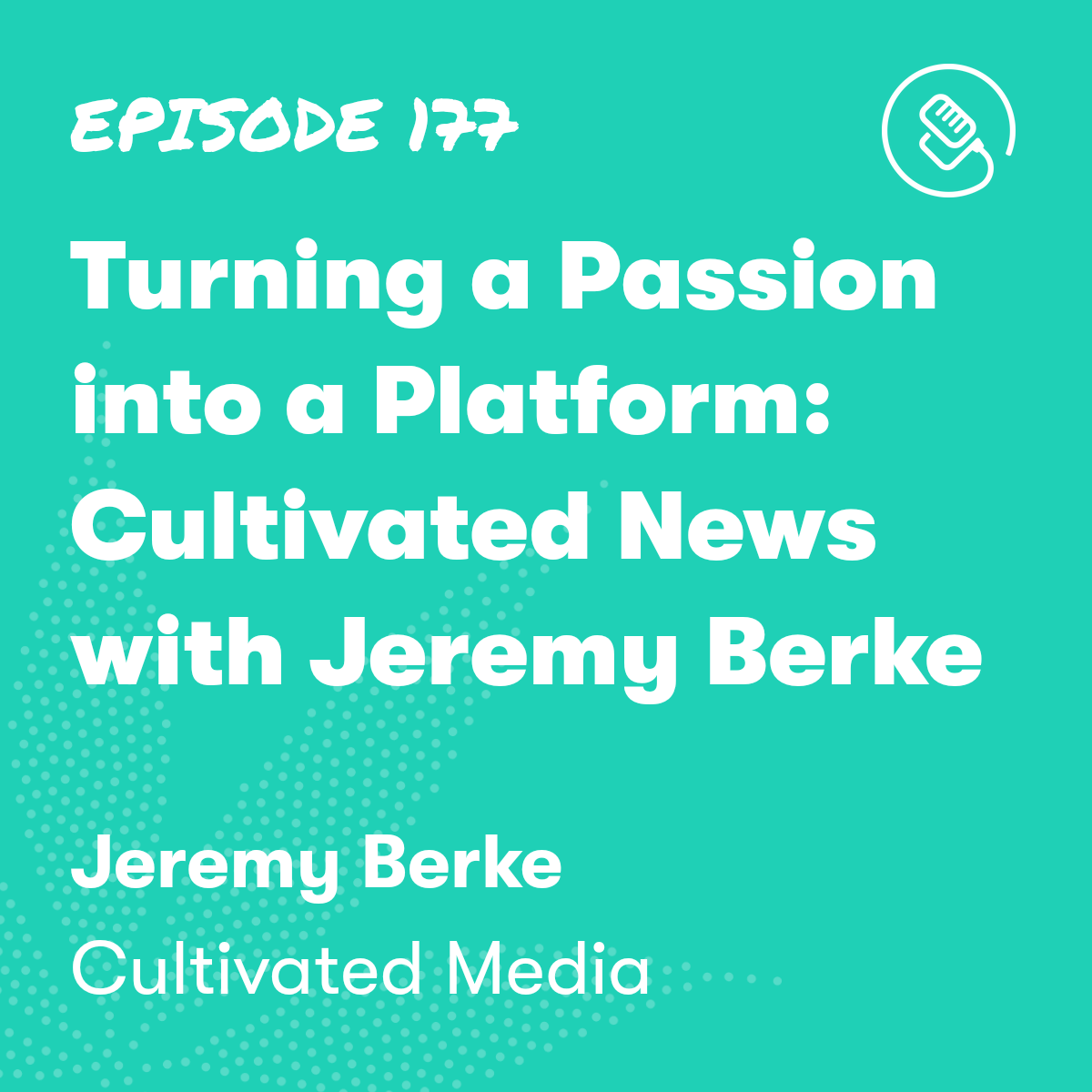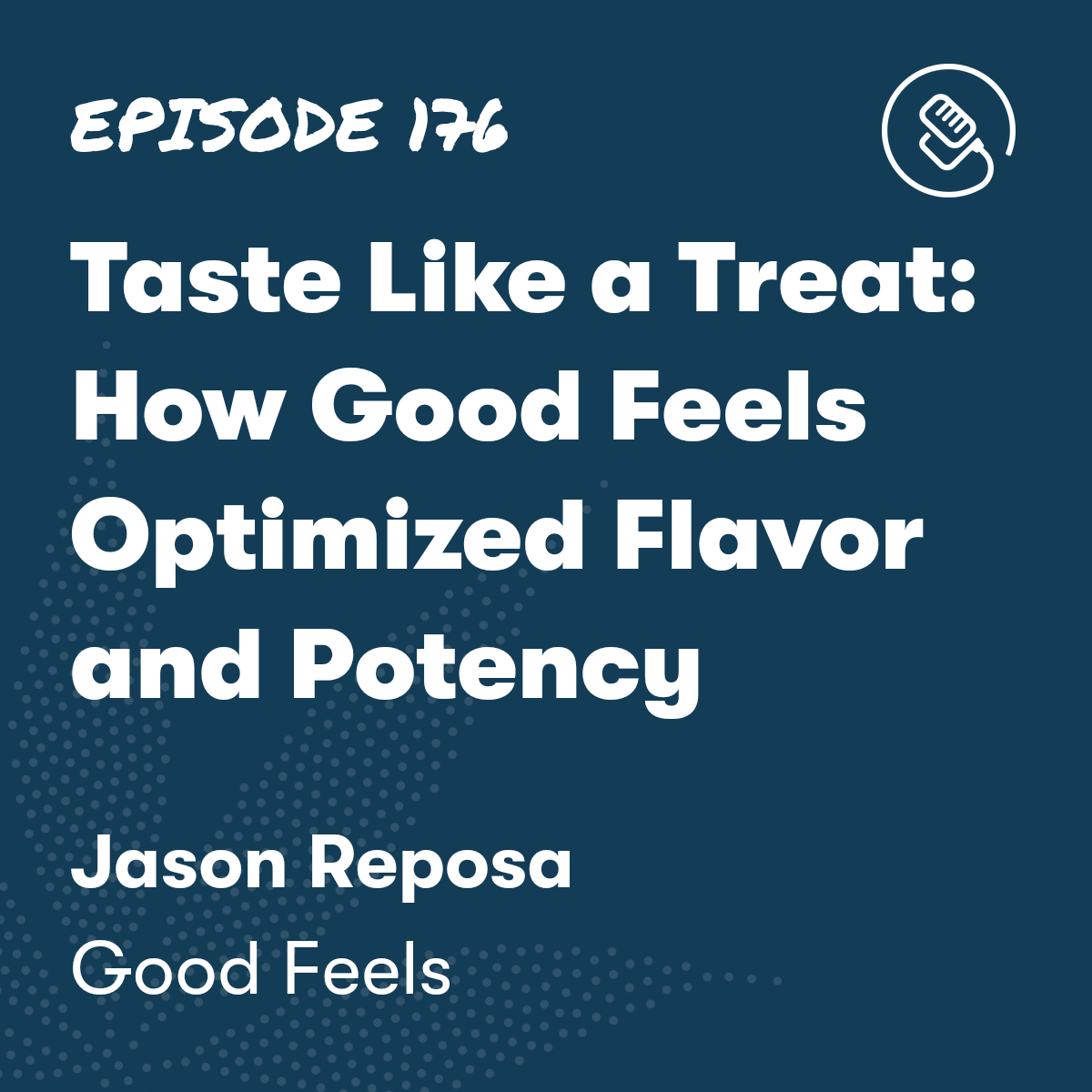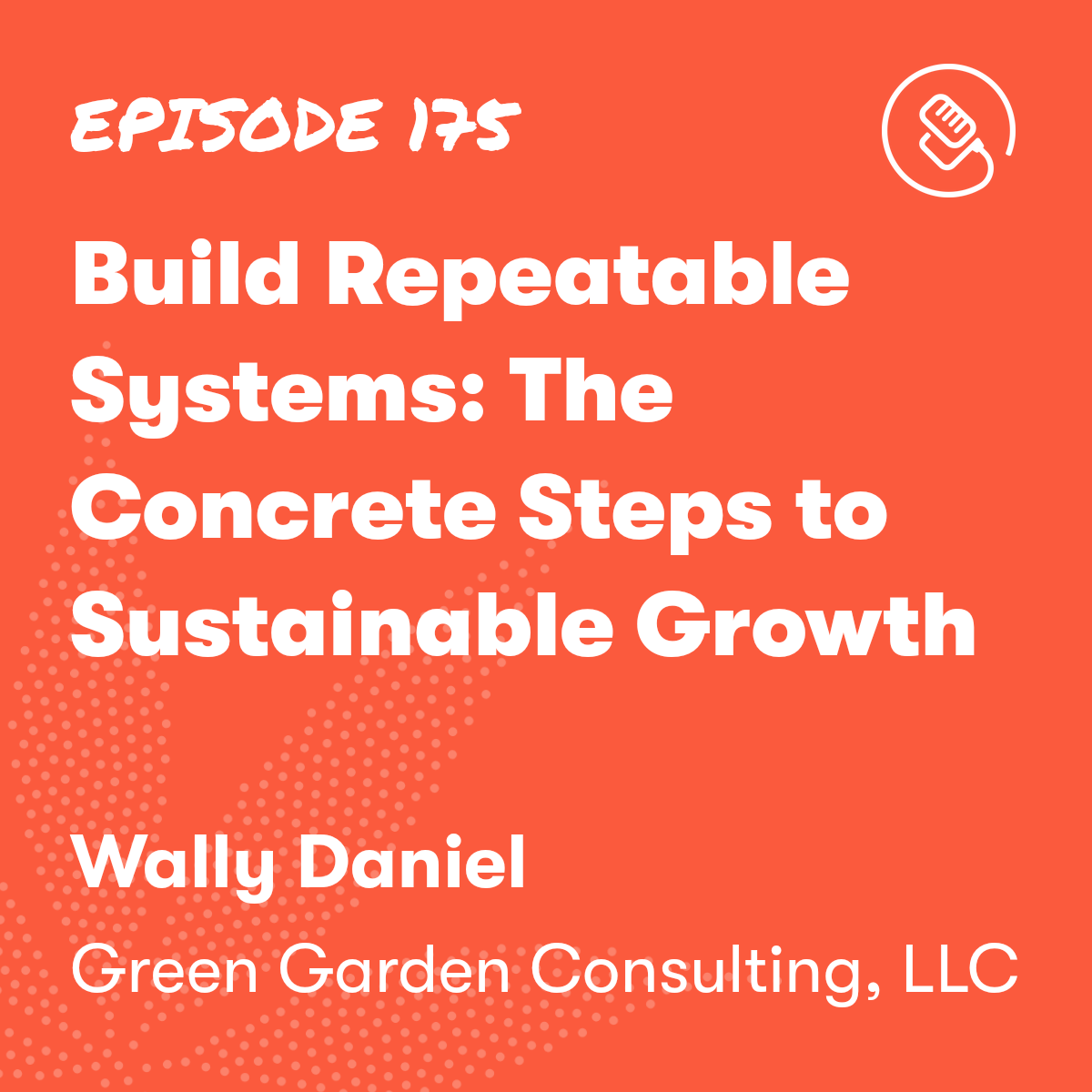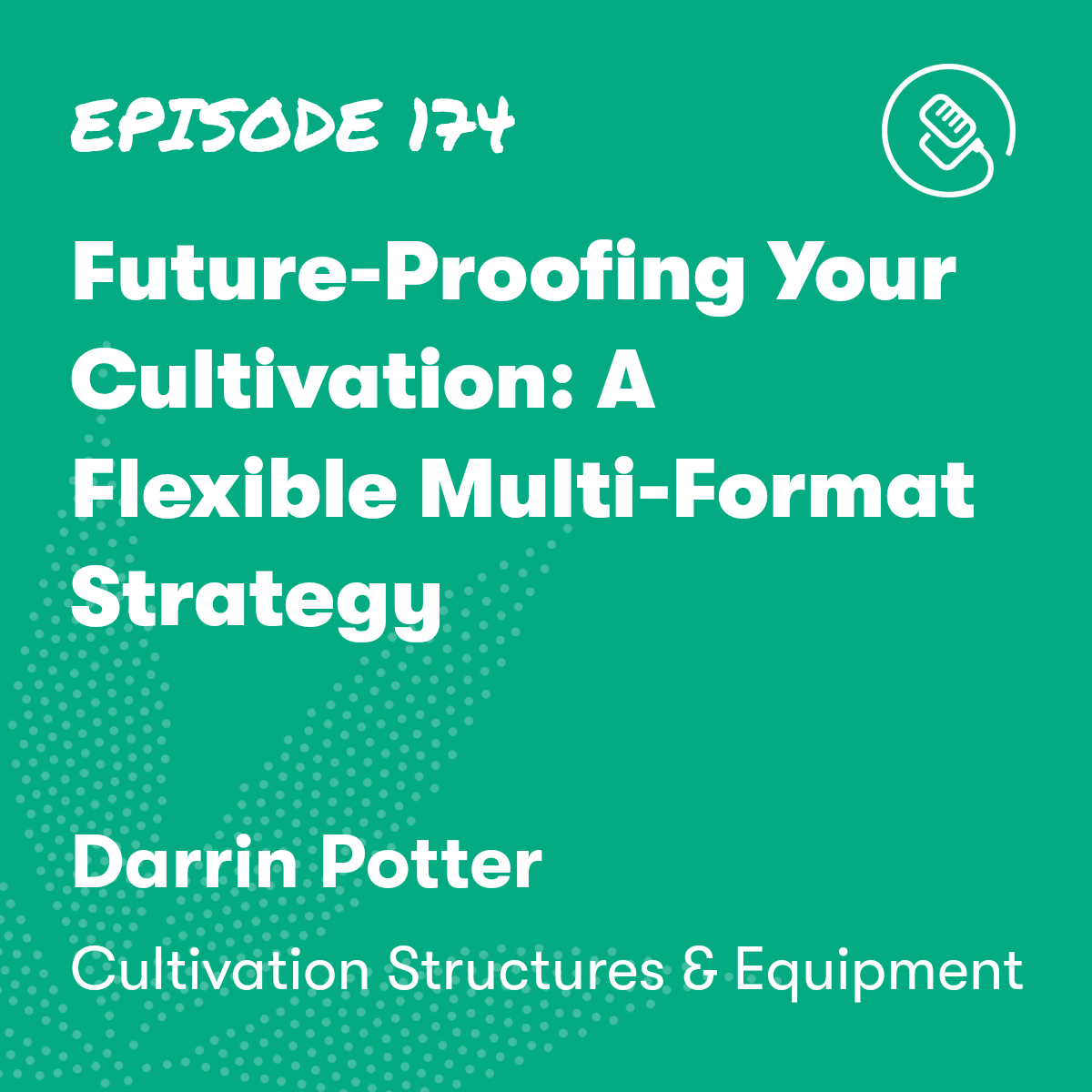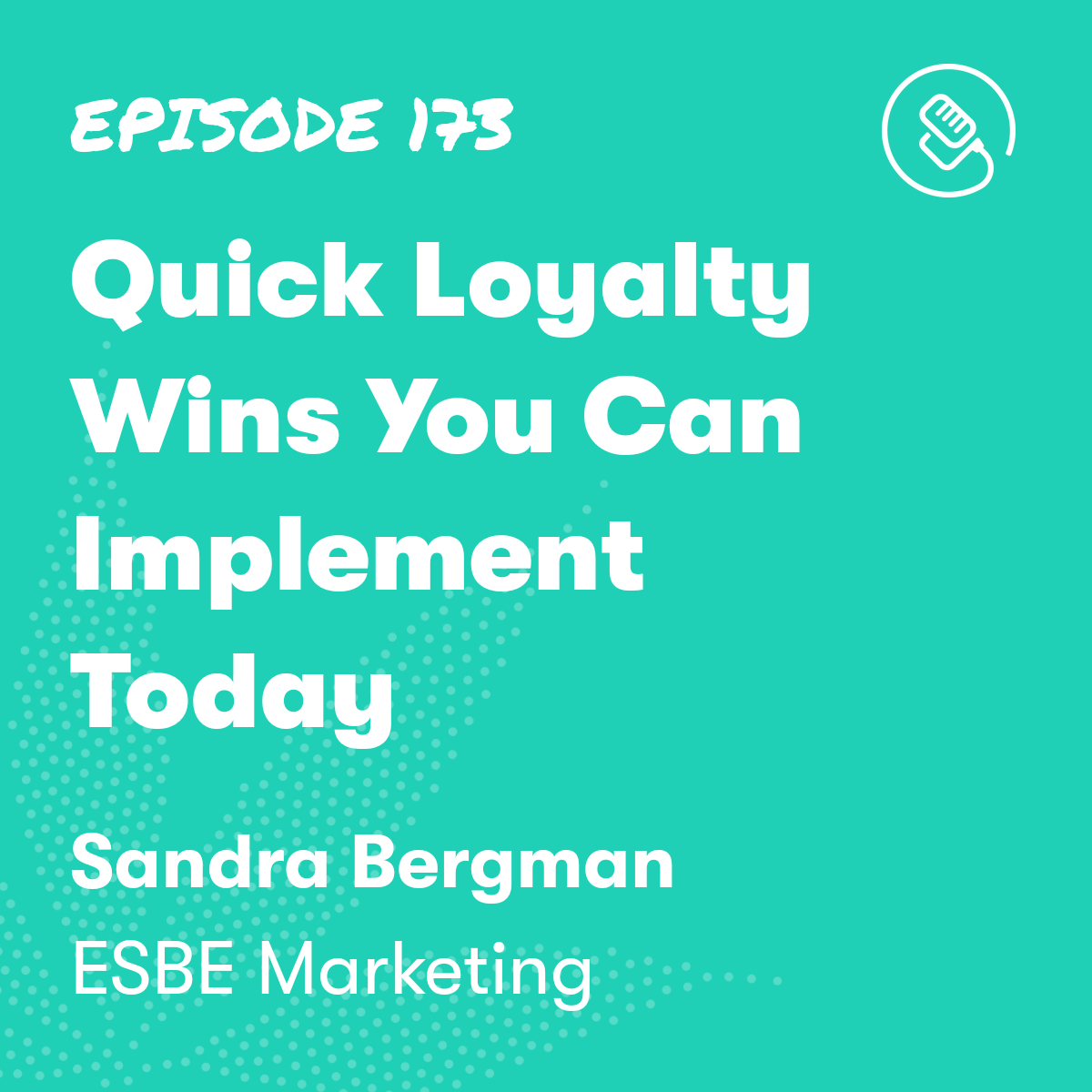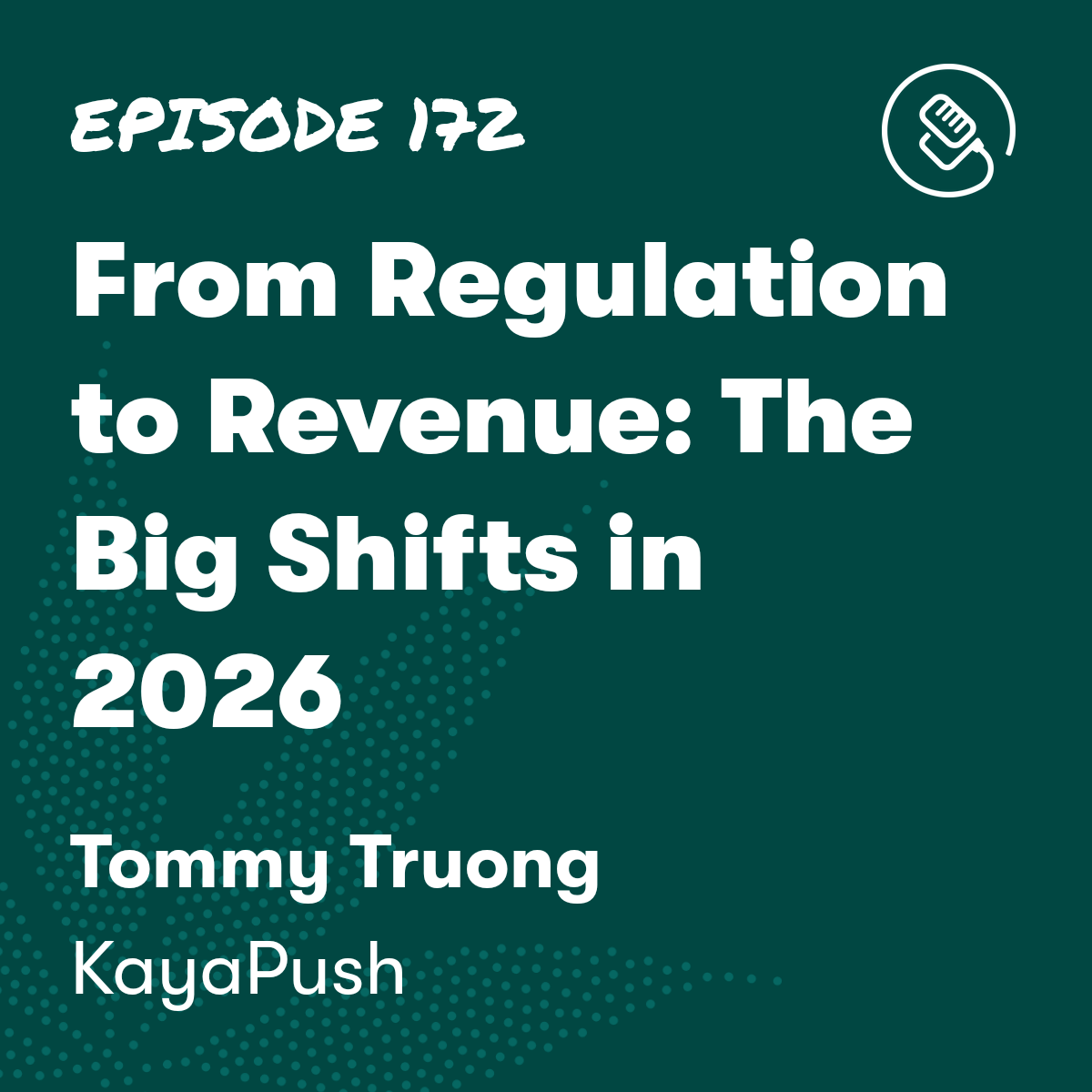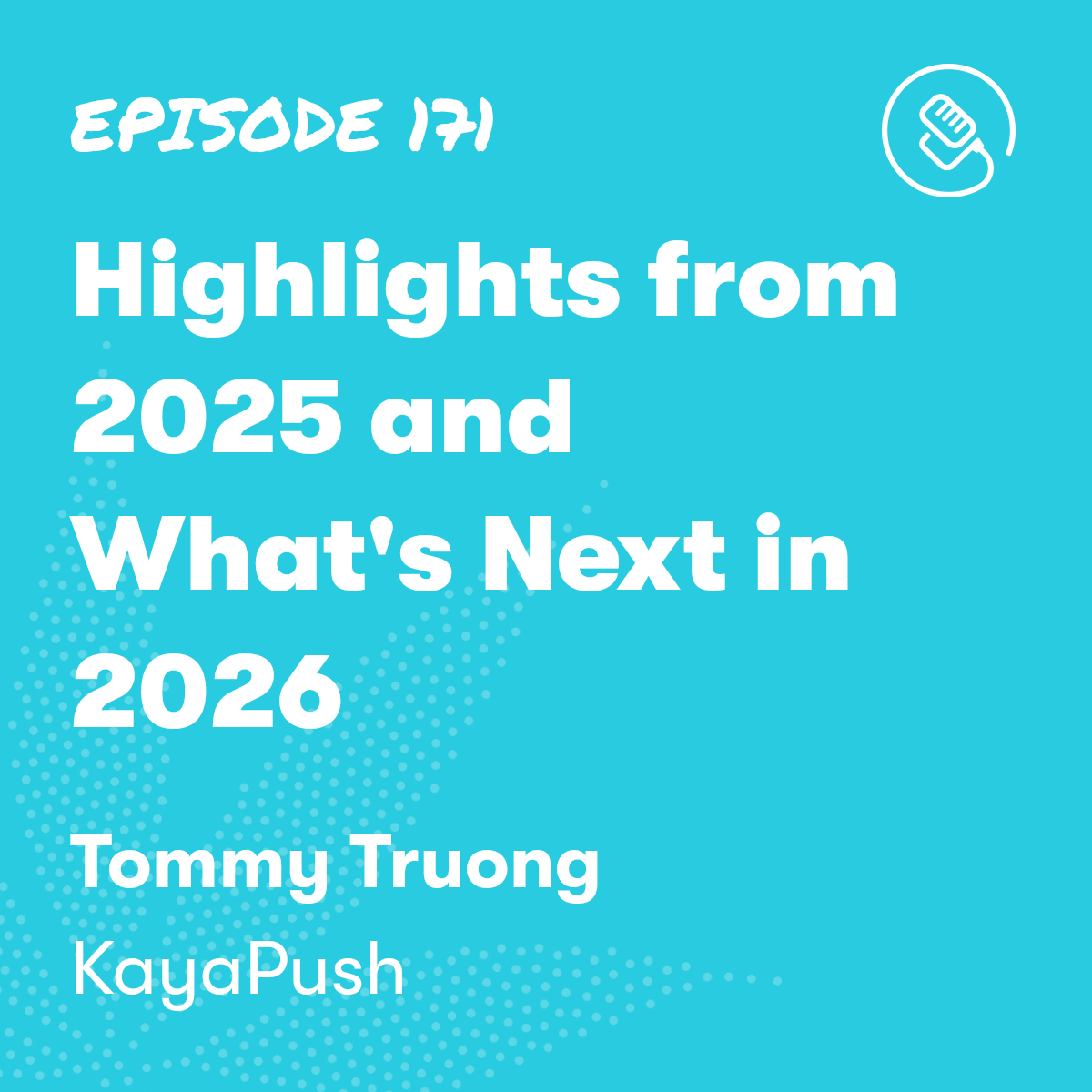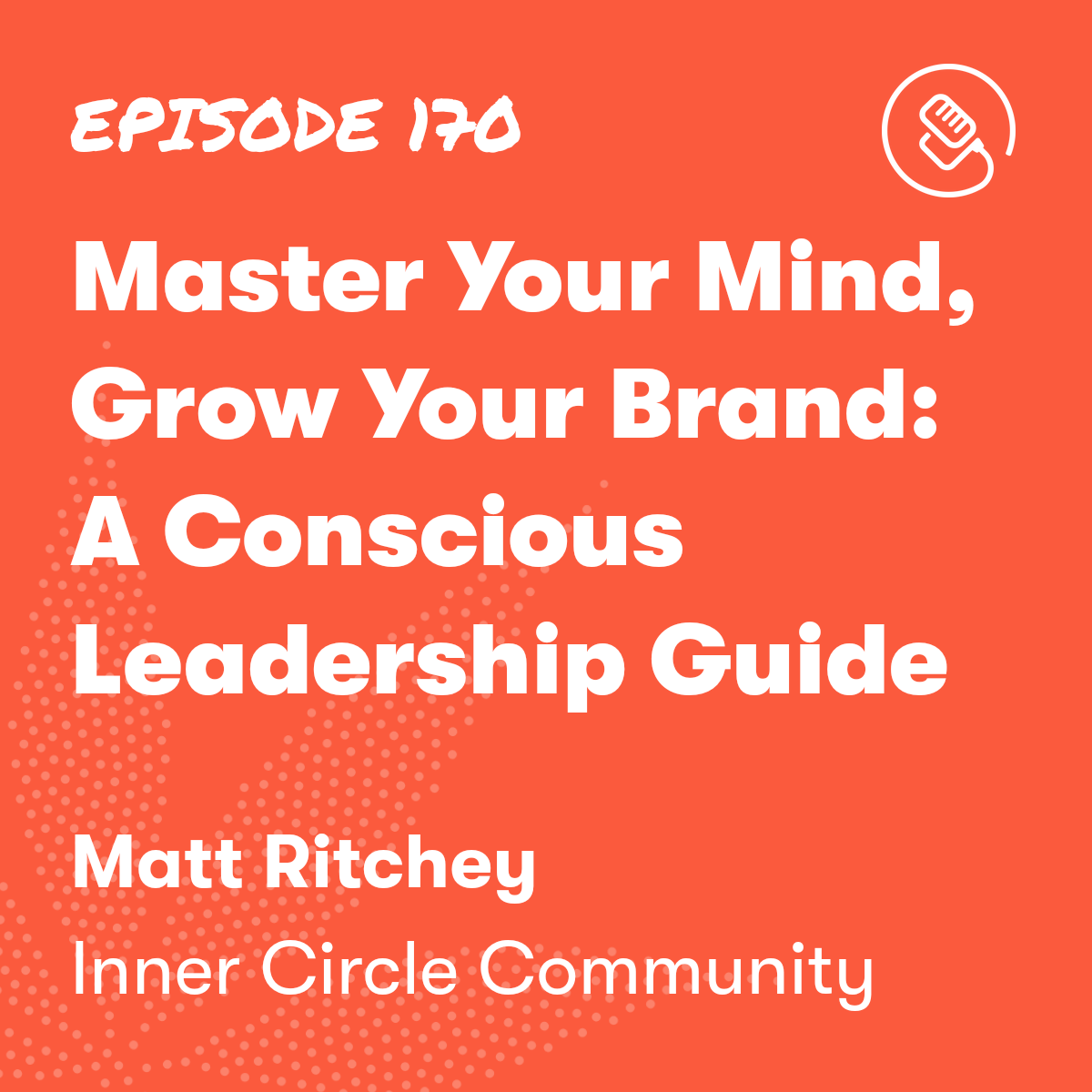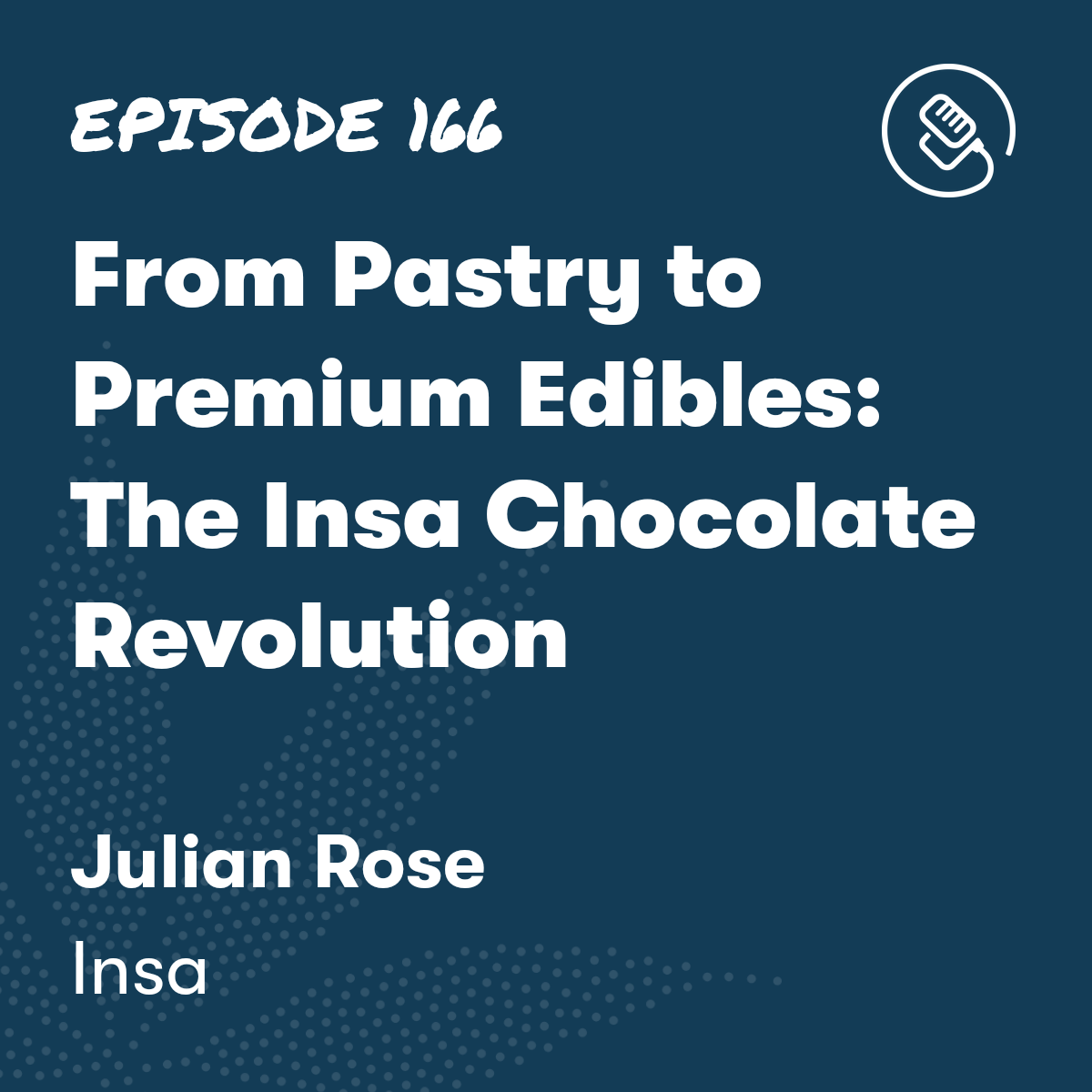

Developing People First Cannabis Companies with Jon Bond (Dutchie)
Episode Description

Episode Transcript
Tom Mulhern: Today on the show we have a conversation with Jon Bond, who's the director of Partnerships at Dutchie. Now, Dutchie is one of the world's largest point of sales systems. And you can find Dutchie pretty much in any cannabis retail operation in your city. And Dutchie does it all.
They really offer an all in one solution. And so it's really cool to sit down with Jon and find out, how they've built their partnerships and. The ways that they're working to really not just build their company, but build their people and build the companies that they work with those small businesses and how they're investing in every single business relationship, every single partnership they have to really make the cannabis industry a better industry.
And so Jon shares some insights into what it takes to grow a company, what it takes to really build. The team, your dream team that you're looking for. And Jon's a great guy, had a really good conversation with him and I know you're gonna enjoy it. So let's jump right in.
Tom Mulhern: Jon Bond is the director of partnerships at Dutchie. He has a long history in the cannabis industry from launching a dispensary in the early days of legalization to working at the largest cannatech company in the industry. Dutchie. Now Dutchie is an all-in-one technology platform, empowering the cannabis industry with point of sale, e-commerce, payments, insurance.
They do it all. They're the technology company that's really helping cannabis businesses start, operate and grow with confidence. Jon, it's awesome to have you here on the show and uh, welcome to the Kaya Cast.
Jon Bond: Absolutely Tom, thanks for having me, man. It's great to be here and Kaya is doing some great things as well. Excited to uh, working together.
Tom Mulhern: That's sweet, man. And you're, you're coming in from Bend, Oregon, right? That's where
Jon Bond: Dutchie's HQ.
I am. Yep. It's our headquarters now. We hired really quickly through the pandemic and initially most folks we hired were from Central Oregon and then we grew by about 500 employees over a year and a half timeframe, and coincidentally, and actually to the benefit of our customers. We have Dutchie fam in like, I think uh, like 40 states um, in terms of employment.
So like we're able to regionalize like, support and things like that, et cetera much better now organically. So that cool.
Tom Mulhern: I gotta be honest, like Bend is one of my favorite places. I've been there before and it's got mountains. It's got the beautiful Oregon Forest, like it's got everything.
And it, it's got the last blockbuster too.
Jon Bond: it does. It's funny dude. It's like right close to my house and it's funny, my wife and I, our friends will be in town or we'll see someone. Get me a obligatory selfie at the last Blockbuster, or like any favorite music act. But it's definitely there and you can definitely go inside and check it out and rent movies still.
Tom Mulhern: You can still rent movies. I didn't know that. They still like were function.
Jon Bond: Totally. Yeah. I don't think I've had a DVD player for like at least five or 7, 5, 7 years for sure. But yeah, it's super cool. Bend's the best. Central Oregon, you can't beat it.
Tom Mulhern: Yeah. So man, tell me a bit about your background and how you got involved in the cannabis industry.
Jon Bond: So I was working in in HR tech for about seven years or so, right as I got outta college. And I was living in Las Vegas at the time. I had moved out there in 2015 with the intention of getting in front of the legal cannabis industry. And so the thought that I had behind it, you look at markets like Colorado, Washington, Oregon, California, where legal cannabis have been happening for a while.
The value of like putting in a business like backbone and like infrastructure into like helping shape an industry isn't quite as valuable there when it's established versus something's like a medical market just getting off the ground. And with the exception of a couple states like South Dakota, almost every state.
The trend is you start with a medical program, you build a business case for adult use, and then that sets the stage to get into adult use. And so Nevada just passed their cannabis program in 2015. I had moved out there, we networked for about two years. My old business partner myself, who's still one of my best friends but ended up raising some money and we got actually a cultivation off the ground.
So we didn't have a retail storefront, but we had a cultivation facility that's sold and about. 80% of the dispensaries in the state. And so we built a brand basically on t-shirts, hats, and follow up, and was really great to be a part of that initial adult use push. Starting in it would've been June of 2017, so had that for about a year and a half.
Ended up getting out of that and doing some consulting for about six months. And then I met our co-founders uh, at Dutchie. I wanna say like late or mid to late 2018 right after we had closed our seed round and fortunately spending the time that I had spent on the plant touching side of the business really highlighted some of the pain points that existed from a technology lens and also building my career in technology. Up to that point, I looked at it and I was like, Look, if someone can execute on this concept at scale and at scales like the operative term there this could really propel the industry forward. And we'll always have a place at the table in terms of how can we help advance cannabis further tomorrow than it was today.
And so jumped on with the Dutchie team as our 14th employee in December of 2018. And here we are now about four years later with nearly 800 employees and working in the space the way that we are. So just lucky to be here, I would say.
Tom Mulhern: That's awesome. And I know Dutchie is like one of the biggest probably. The biggest CannaTech company in the world. What makes Dutchie's e-commerce platform unique? You've got obviously a whole bunch of products and solutions that you offer, but what makes you guys unique, that makes you stand out?
Jon Bond: It's interesting because we started as just an e-commerce company. Our CEO started one of the first online food ordering companies in the US back in like 2007. Ended up selling that business, moving to Canada, doing the same thing, and having, building that business, selling it a couple years later.
And so we have experience there along with our other co-founder. Um, From the design and product side, they built almost like an agency, right? And they had a FinTech product. They they built and sold. And as an e-commerce company, especially back in 2018, it was a vastly different landscape.
There weren't that many point of sale providers out there. Cannabis was still getting its legs underneath it. And We really saw a ton of value in being able to solve problems for the industry, right? Online ordering just almost didn't exist at that point because, whether it be technology wasn't really able to support it from like the APIs to the point of sale, et cetera, and. Those first two years as just an e-commerce company, we would think the next logical step would go into like ad tech, MarTech, which we've seen like some of our, what I would consider to be partners now, right?
We've got some quote unquote former competitors that are now partners of ours because we own point of sale technology as well. But when we talk to our customers, even though the logical next step from every other vertical would be ad tech, MarTech, all of the problems were downstream. We determined the best next step would be to spending in the spirit of solving problems and pushing cannabis forward.
We ended up acquiring Leaf Logics and Green Bits in March of 2021. To be able to bring together, what we would consider to be like the full stack solution. Right now, the great thing there is that allows us to be more flexible from like a partnership and integration side of things.
And so if you were to ask me why our customers love us, right? And we hope that they all do. Usually we get pretty good feedback there, so pretty confident on that. It's a, the team our team is unbelievable. We take an immense amount of pride in being able to be present and authentic with our retail partners in that, we're still that same small company out of Oregon that we were four and a half, five years ago when we started.
And the ability that our team has support these retailers. I would additionally say that we build everything for scale and when we think about where cannabis is headed and how demanding the retail landscape can be, it's really hard to say no to folks early on, especially when they have like, We want this button here, or we want this particular functionality, especially when we're throwing, a lot of money at some of the most brilliant folks that have ever sat behind keyboards in terms of like how we build things. And so understanding what to like say no to and what to say yes to is a very fine art in terms of maintaining a customer experience that like folks want to work with you on.
And also like building a technology that's scalable and isn't held together by duct tape and toothpicks, right? And. That would be the probably biggest defining factor is that we support our products really well. For us to say that like we reinvented e-com or reinvented point of sale or reinvented payments, that's not the case, right?
We're just blocking and tackling very well at scale and enabling folks to be successful.
Tom Mulhern: And you offer, like you said, that full stack solution, like you've got Dutchje, point of sale, e-commerce, Dutchie pay, even insurance. So how does that work with what you guys are doing?
Jon Bond: It's all in that same ethos of what problems can we solve for cannabis operators today? And we do a lot of homework. We spend a lot of time talking to folks about where is the biggest hole in your swing as a business. And so insurance naturally folds into that along with the financial services piece.
And so that's a fun one. It's an entirely separate division of Dutchie, right? I could be the first one to say, I don't know a ton about insurance, right? So I, I tread very lightly in talking about it. But that said, I do know that we're insuring pretty much all types of insurance besides like, you know, health insurance, right?
So property casualty liability, et cetera for any type of cannabis operator, which is super exciting.
Tom Mulhern: That's so cool. And now obviously the future of cannabis is in delivery. So how is Dutchie kind of working to mobilize delivery? Where in markets where it's legal, like what is, Do you guys have solutions for that too?
Jon Bond: We do, and we have a lot of customers that utilize delivery today. The difficult thing with delivery and I think it's like the root to a larger problem, is like so many cannabis operators are operating under a false preset pretense of what their actual cost of doing business is, or their cops, right?
And so like, tying together and making sure that we're able to help those businesses run efficiently to where they truly know the cost of running their business, is the first step. And then finding ways to help improve operational efficiency so they can actually make money doing delivery. Because the difficult thing is to be a cannabis delivery driver.
It's a lot different than if you were to go deliver and drive for like DoorDash or Uber Eats. Like you have to have like an agent card. In most states, there's different regulations. There's entirely different costs associated with that business. Our position there is we absolutely enable folks to, utilize their own employees for delivery and give them the tools and technology with like great partners like On Fleet et cetera.
And obviously that bolts onto our delivery tech. Giving them the ability to say, Okay, we can better understand our business and be more operationally efficient here to where we have the room to go out there and establish a delivery footprint. Cause delivery's still pretty early in cannabis now with the exception of non storefront retailers in California and Michigan.
That's the model of the future which is truly just an e-commerce play. And then you've got a warehouse of inventory and you're delivering directly to consumers. That's gonna be slower to adopt across some of the more conservative states, even ones that have like medical cannabis. But that's where we see the opportunity going.
And then, as the industry allows, we're continuing to provide tools. We want those brick and mortar retailers to have the same opportunity to be successful as the folks that aren't carrying the overhead, which we're excited to solve that problem for sure.
Tom Mulhern: And hearing about like, you know, the business side of it. Is really key, but I know that you guys are really one of your key things is opening people's minds to the good that cannabis can do. So talk a bit about your company, cuz I love you've got some social justice stuff in there, some body in mind.
Is that baked into everything you guys are doing as well? Like the people side?
Jon Bond: Yeah, a million percent. Cannabis especially has been vilified for so long, right? And the war on drugs has had a disproportionate impact, especially on, people of color, right? And elevating that message and that understanding to folks that there's a bigger opportunity here to like really write some wrongs and drive that forward with the cannabis industry, both by way of like social equity licensing and more equitable hiring opportunities.
That's like really exciting cause in, in my mind and in our mind, I can speak for myself, but I know especially on the Dutchie. Being humans and being good humans and supporting the things we wanna support is like far and away most important.
Being able to like help uh, operators and folks that were in a disproportionately disadvantaged situation be successful, is like what it's all about, right?
And we get really excited about helping support that as well too. Wanting to do it in a genuine way. We've got a huge partnership with Last Prisoner project. There's 40,000 people in prison right now for nonviolent cannabis crimes, and cannabis is expected to do over 30 billion in legal sales next year. That is just an absolute shame. In the last prisoner. Folks are great. There's a lot of other really great groups out there that are focusing on it too.
And I think the really cool thing about that side of the industry is that it's not about like who wins, right? Everyone's like, there's groups like Last prisoner and 40 tons um, Minority Cannabis Association on like the equitable opportunities that we do some work with but everyone's in it for the same reason, especially with that side of the business, and it's it's really exciting to see folks come together in cannabis being that common denominator and opportunity to make that happen.
Tom Mulhern: Looking at the growth of Dutchie, how have you grown with your partners?
Like how do those, some of those integrations fit into your ecosystem? Like, Have you seen that growth as you've added partners and what has that kind of looked like?
Jon Bond: It's been a very evolved strategy, is constantly evolving based on what the needs of the industry are and what the needs of our business are. And I think the exciting place that we're at now, which has taken us about a year, Or to get their post acquisitions of the point of sale companies.
We're making it and we want to make it far easier to work with us right now. We still have to do all of our checks and balances, due diligence, vetting of partners, et cetera.
At one point we were a small company that was totally reliant on our partnerships and the folks that helped us grow in the earlier days and we'll take a 15 minute call with anyone, right? Especially if it's someone that's working, one of our retailers.
And so we've set some pretty specific benchmarks in ways that we can work together so that every partner has an equal opportunity to work with us because we know working with over 6,000 retailers in North America. The get for our partners, that they get an opportunity to sell their products and work with our customer base, right?
The benefit for us is that we can stay fanatically focused on the things that we need to be good at, which is e-commerce, point of sale and payments. And then we have an array of unbelievable partners that we really couldn't survive without outside of that. And so it makes it really exciting because, Always be wary of the folks that say they can do absolutely everything, right?
The jack of all trades, the Master of none type thing. We're fanatically focused on e-comm, pos and payments. And so that's where the rubber meets the road. And we're excited now, like from the former days of just an e-commerce company, like it opens up new partnership opportunities being a POS and payments company as well.
And so companies like Kaya Push, for example and you all are doing some great work on the employee management side of cannabis retail, right? It's really exciting to be able to offer that layer of business understanding and business intelligence around what's happening in organization to businesses that have a million fires to put out every day.
And it's like, which ones do I plan on putting out in the next two hours type thing.
Tom Mulhern: There's so many gaps in a business and so being able to say, you know what, we're, we just can't do this. So finding those strong partners in for a dispensary owner is there value in them leveraging, some of those partner relationships to help grow their business?
I don't know if you've seen that in the industry where a dispensary's been able to leverage either Dutchie or or another vendor to kind of grow their business as well.
Jon Bond: Absolutely. And really that's like our goal, right? Is we're working towards a place where. We have a partner marketplace eventually, and you just go in and there's pre-built integrations and you click in, you say my API token for this, and then it's added right now. That's like a future state, but that's something that we work towards.
And like when you think about as a retail operator and a dispensary owner to your, for your example, There's a ton of value in knowing that I'm gonna reach out to Dutchie and ask, Hey, how would you solve this? And if we're not the ones to solve it, we have a list of folks that are able to talk to you and like products just go so deep.
Cannabis is so nuanced on the technology side. And so it's for example, we have vertically integrated operators that have retail cultivation as well. We have a cultivation module. But when you talk about how you manage cultivations and I know this because I had one for a year and a half, it's like task management, labor, all of that factors into that true cost to good soul.
So we have a great partner in Trim who's a best in class cultivation technology that allows us to let them go deeper on the things that they need to go deeper on that we would never do on our own. And so now it's a better solution and puts the retail in a better place, and that's one less thing they have to think about throughout the day of like things that could go wrong which makes it really exciting.
Tom Mulhern: And when you come in and build those relationships, what does that kind of look like at, for those retailers, whether it's cultivation or a dispensary do you guys, you know, come in and help them set up the whole system? What does onboarding look like with Dutchie for a new retailer?
Jon Bond: We have folks that are working with us on some of our technologies. We have folks that are working with us with all of our technologies. The exciting thing there is that when we get them into like the funnel, like we're bringing them on as a customer. We have an implementation team that does an unbelievable job. It's their every single step of the way, an implementation team of think close to a hundred, right?
Of folks that are literally their entire responsibility is getting them through that process. There's, There's data migrations, there's setting up preferences. Every retailer has like a different take on how they should be running their business, right? And so we wanna be able to meet all of those so we have like feature flags and things like that in the back end of our system.
Then once we're through the implementation process, and sometimes that will also Entail us going on site for some of the more involved implementations. They have a customer success manager, that's their customer success resource from there on out. And then we're running qbr, making sure that we're still like, where can we be better as a partner for you to The dispensaries a question that we ask often and because of that, we get a lot of really candid feedback, which is great for someone that's constantly trying to improve their product.
So the exciting thing is, There's a lot of technology companies that will onboard you and then you never hear from them again. We're constantly being proactive in making sure that like, hey, how are we doing?
What are some of the new challenges you're facing now as a retailer that you weren't facing six months ago? Because. Unlike other industries, cannabis has that happen on a pretty quick dime. Regulation changes happen, marketing things come available from an opportunity standpoint that weren't available for something like Safe Banking will end up passing eventually.
You know what I mean? So it's just a very dynamic conversation that we just want folks know that we're there to support them through the whole thing and in a very pretty complete way.
Tom Mulhern: So thinking of some of those big pitfalls and challenges what are some of the biggest roadblocks that you're finding these retailers are running into right now? Like you said, it's always changing and there's different Yeah, there's different challenges that maybe we weren't even facing a few years ago.
So what are some of the biggest issues that, that people are hitting and then, maybe what are you guys doing to solve some of those issues for retail?
Jon Bond: I would say the biggest one that I've noticed we'll just start with the top. Almost every single cannabis retailer that you talk to has had five other companies promise them the exact same thing that you were saying right there and not delivered on it probably in a very short window over a couple of years.
And so we work really hard to not be salesy in any way, right? Like we're there to ask questions to see if there's an opportunity for us to fit into your business. We're not there to like, you know, the old tech I'm gonna tell you it's on the roadmap and then we're gonna sign you in that talk again.
That's just not something that we've ever had as a culture, and it's cost us some deals in the past. But what's funny, Those customers end up being our customers again anyways, because they were let down by the folks that promised it or didn't have the transparent conversation there. So like status quo and competition there of just like the fatigue of that is the biggest one for sure.
What do you do as a retailer when you've got a hundred problems to solve? Like you've gotta trust them. That's gonna work. I would say the biggest one that's like that wasn't there probably a year ago, that's definitely starting to rear its head, especially as we've launched our payments product, is banking relationships.
Most dispensaries don't have banking relationships. And so a way that we've helped get in front of that, we have relationships with several large banks that operate nationally, right? We also are constantly vetting and finding new banking partners localized as well too. We wanna have as many options for folks as possible because we stay agnostic there.
Similar to like our other partnerships, banking partnerships are no different. So we've been working on helping retailers connect with financial institutions that are going to allow them to bank and thus limit some of the liability they experience of being a totally cash business. There's tons more, like delivery is another one, right?
I could go all day, but it's it's pretty cool how we gather information. Like we have a UX research team and a team that focuses entirely on what are the biggest problems that people are facing in cannabis and how can we help solve those? And that's an ever evolving, super exciting conversation to be a part of.
Challenging it sometimes. Sure. But what else would you rather be doing? You're solving the problems of tomorrow, today.
Tom Mulhern: So you have a team that actually develops the Dutchie ecosystem based on some of that feedback from these are our issues.
Jon Bond: Totally, dude. And that's where I think we're different than other folks, and I think we can do this because we have headcount and we've been able to raise enough money to run the business the way that we know it needs to be run. We have folks go spend eight hours on a dispensary floor and just watch.
The amount of technology providers, and it's funny because we've always been the most genuine like we have no problem with anyone, man. And it's funny, as you grow, you obviously start to see that the chirps here and there, and I'm like, I know a lot of folks haven't even spent more than an hour and a half on a dispensary floor to understand what the actual problems are.
And so that's like a traditional. Like you would do that in a world that wasn't technology driven. But we apply that because the cannabis has that weird like hybrid. You've got the online and digital experience and the technology piece of it, but there's still such a human element to that, right?
Let alone like the budtender aspect. Over half the folks that walk into a dispensary are influenced by what the budtender recommends. And there's, like technology solutions come out that are alienating or even cutting out that bud tender experience, that's a huge miss. You know what I mean? And so like we're working on ways to, like, how do we connect that closer and help folks, like bud tender education, for example, you work some really cool companies in that space too, but it's super interesting and those problems, like it's a sundial, right? If you're too early or too late, you're in the shade. But if you're running at the right speed and like in terms of what the industry's ready for and what you can deliver, it's a pretty cool thing.
Tom Mulhern: What was the one kind of aspect that helped you to grow and scale to the business you are today? We've talked about some of those, but is there like one specific thing that, like you guys did, right. Cause there was a lot of people, back when you started, but you guys have done something right?
So maybe, you know, maybe, you know, maybe you don't. But is there, is there like a, You do, you do, So tell me, give me the secret sauce.
Jon Bond: And it's not even a secret, right? Cuz it's a pretty widely adopted, it's hard to hold yourself to, but we prioritized infrastructure and support very early on from the very beginning. We made sure from the ground up that we built the absolute best technology.
We built the best support resources in terms of like how you get ahold of us, how quickly we respond. Like an under minute response time on the support side from that angle, right? And that. A huge deal.
There's really two different worlds in cannabis, right, especially cannabis technology. There was before the pandemic when operators were like, Eh, you know what? I'm gonna have the same folks show up to my dispensary every day. I don't need online ordering. I don't need to have a marketing strategy. Then you've got the pandemic where so many states like Colorado, Michigan, et cetera, went to, okay, you have to be an entirely, you're declared an essential business, and now technology is far more important in your business than it was before.
And it was like a pressure test of every one of the technology solutions that folks were using. Fortunately, Because we have an unbelievable team and have built a, an unbelievable product, and I'm a little biased we were able to meet that need head on when retailers needed us most. And it was just a hockey stick of folks interested in working deeper in the cannabis technology side as a retailer than they were before.
We're trying to elevate the cannabis industry, but you could definitely tell folks that maybe didn't prioritize infrastructure and support, all of a sudden they're getting a thousand phone calls a day because people are frantic trying to set something up.
Something's wrong with the technology and they can't get back to 'em. And so you've got cannabis retailers fighting for their life and it was very difficult to get a hold of folks or technologies breaking, et cetera. That was the quintessential turning point because it was one of those moments where there was three months where it was just absolute pandemonium in terms of the volumes that dispensaries were seeing and like how reliant they were on technology.
So we were able to fall back on technology and support there. And then the rest has been kind of history because all we need is for folks to experience our product and let us show you. We're not gonna tell you, right? Sure, we'll tell you too, but it's way easier for you to like, believe in it, trust it, and then when it works, it's an entirely different thing.
It was one of those things that you planned for and they always say like, hey, when you need to scale, you need to scale. Well that happened and we were ready to answer the call and support folks.
Tom Mulhern: Support is so key, like you think about Apple. The growth of Apple and when they opened their Genius bar and you could come with your questions, bring your like phone, your iPad, whatever, that was broken. And like they've built that infrastructure, that support so that there's gonna be issues.
There's no technology that's perfect, that's gonna be issue free. And you guys being positioned perfectly at that time to have that support when people were switching and saying, we need our technology to work because that's the only way we can get our customers. That's a key aspect.
Jon Bond: Behind all of that support is the people, and I know I keep. Sizing that, but like we have just the absolute best team in the entire world, and everyone's moving towards the same mission selflessly. And that's a super exciting thing. And when you couple that with like strong technology infrastructure, the possibilities are endless. It allows us to go solve other problems. Like instead of fixing the technology, it's okay, what's the next biggest need of these partners based on what we know now and where we're at as a business.
And so we continue to like, Prioritize that type of thinking. It'll leave us like, assume that we're always selling more cannabis tomorrow than we sold today. And that's just indefinitely until the end time. If you're gonna bet on something, bet on that. Without a doubt. And so we need to be ready to meet that need.
Tom Mulhern: And now those guiding principles have helped you to scale. Have you seen some dispensaries that are just like killing it and some of their guiding principles that are similar. You said you work with 6,000 dispensaries across North America. What are some of those guiding principles that are like really working in those dispensaries that are, stand out dispensaries that are just killing it in the market.
Jon Bond: Cannabis is like professional sports. You know, Like people are really stoked to be there. It's a common denominator, right? If you were to look at a cannabis company in like a professional sports organization, I would say that there's more folks that's common denominator of them being there is their love of cannabis and professional sports or music or whatever that is. So that's a really great leg up in terms of like how you build a culture.
But if you look at that though, and it's like, okay, you've got this great setup. You've built a great successful cannabis business, it gets really easy to get blinded by success. And this isn't any vertical. It's not just cannabis.
And you've gotta remember that folks are there and they're passionate about the plant for one reason or another. Taking care of the team and making sure that the team feels heard and making sure that the, like the turnover of employees at dispensaries is crazy. It's one of those things where it's like there's very easy things folks could do to make sure that their team feels heard and heeded.
That I think goes miles with folks because you can make money doing anything, right? If I'm gonna spend my time somewhere, I want to feel like I can be my authentic self, which you can do in cannabis, and then allow me grow within that opportunity and that role. And so that's like a huge piece of it.
I would say the other from like a system side of things. Not trying to reinvent the wheel and taking folks word for it. This has gotten a lot easier and, and again, that has to be earned from like a technology provider standpoint, but with every dispensary that we sign up or that we work with and that we didn't work with yesterday, it's one more person in the business case bucket of hey, I know that like here's the end goal you're trying to accomplish, and I know you feel this is a way that we should get there. We can help you accomplish the same goal, but in this way, are you married to the results or the process And being able to be more married to the result, knowing that the process might change will help you really like slim down the amount of decisions you have to make as a business.
And so that's where you know. The true one stop shop, who knows if it's going to ever exist, right? Like we're a one stop shop for the spinal cord of cannabis. But we, again I'll just reemphasize, we have partners that we could not survive without, right? And we're very fortunate to have them like eliminating the amounts of places where things can go wrong, where you don't have an answer for why that happened is like paramount in a cannabis.
Especially when protecting like profit margins and employee safety, like all of that. So that's a huge deal.
Tom Mulhern: Now looking towards the future, what do you see as kind of the future of cannabis technology? We could talk about the future of the cannabis industry, but what do see as those emerging technologies that are coming out that are really exciting?
Jon Bond: There's some really cool MarTech stuff out there. I think educational technologies and purchase like virtual bud tenders where there's AI purchase recommendations based on terpene profiles. To my point earlier, the budtender and the recommendation when over half the folks who walk into dispenser are influenced by bud tender.
And I haven't checked it recently, but in most places. Close to half of the folks that walk into a dispenser every day are first time consumers in adult use markets, so they have no idea what they wanna buy. My mom, I love her more than anything. I feel like she always thinks I pick on her when I do these types of things, but she's not an avid cannabis consumer.
In fact, I'll go as far to say. She doesn't really consume cannabis, but let's say that she finds a product that she really likes. And she really likes how it makes her feel. Everyone's got a different endocannabinoid system, right? And the way that she's feeling is probably cuz of the mercine terpene, let's say.
So for us to be able to make product recommendations based on terpene profiles, She might have bought three products in a row that are all mercine heavy and she doesn't realize that. That's why, right? So helping bridge that gap on consumer education is a huge deal and a huge opportunity. And I think to solve that part of the problem, I wouldn't say problem, like it's definitely a big blocker in that is getting better data behind products, better integration with labs, COAs, et cetera, to where we can reference those data points and put some machine learning around it. And so cleaning up some of the data inconsistencies, there's a lot of folks that like will claim, Oh, we have a complete product catalog online, but yet you've got four dispensaries selling the same gummy calling it four different things that are right next door to each other.
How can you write anything programmatic around that? So finding ways to automate to like a very accurate degree is a huge deal. So that's one opportunity. I would say the other is lounges and social consumption. So many places you're not able to even consume outside of your own home, right? From the way the regs are written Now, not saying that me or anyone else would ever do that, but there's such an opportunity for folks to like really experience cannabis in a, in a classier way right now.
It's not like you're saying like, Classy or not classy or whatever, right? Like you think about most cannabis experiences, you'd be like, Oh, that's like sketchy or that's like whatever. There is such like high end places. There's a place in Los Angeles, Green Street Agency, They put on hall flowers.
They do an unbelievable job. They're like pillars in cannabis culture. They built a cannabis co-working space dude. And so now they've got seven floors. It's a Green Street building. This thing's beautiful. It's the middle of downtown Los Angeles. They literally have built a hub for cannabis businesses.
And that's like, to think that that is existing now and out in the open like that is such a cool thing. You know what I mean? If we can take care of business and play our part in normalizing cannabis, it will help. Elevate the more creative thinking. I'm not a creative, I know that.
But I love, love, love seeing some of the creative concepts that are coming out and folks finding new ways. And then obviously there's the product specific stuff, like cannabis drinks are gonna be huge. I already love cannabis drinks, right? But like different methods of consumption, microdosing cannabis in a more accurate way so that you're able to like, I mean there's just so many things.
But those are probably the two biggest.
Tom Mulhern: Yeah, and those different consumption. Like avenues of consumption, like you're saying, like a drink. Someone may not wanna like smoke the flour, but they still want the effects of, you know, the cannabis on their system. And so, you know, I found like having different ways to consume the flower has been really helpful in not just my own life, but even helping people drop that stigma.
Jon Bond: At the root of all that is that education that we were talking about. Cause it's Now I'll talk about my dad. Right. You know, I was, had a chance to consult for one of the first cannabis beers that was brought to market when I was living in. At a between the cultivation of Dutchie days and they have a nano, like nano emulsification is like almost a common thing now at this point in terms of like how they provide drinks or nano emulsified products.
But this was like four and a half, five years ago. So it was still a relatively new technology. My old man and I are out golfing. We go pick up a sixer of this cannabis beer, which is a delightful and unbelievable product, and there's two and a half milligrams of THC in each one. But because it's nano emulsified, it hits you faster, essentially for a shorter period of time in a more intense way, and then it wears off.
So as I sit there with my dad, you know, my dad drinks one. He's like, Oh, that's great. He's like, I'm gonna crack another one, like it's another beer. And then he was floored for like a good half an hour and. Helping, like now my dad understands like how things work and et cetera. So like it's not like it scared him away from cannabis forever.
But when you think about that, it's like we can help folks not have super negative experiences by educating on like, hey, you can always drink more of that, but you can't un drink it once you drink it. And that's like the way you look at it. So if we can continue to put better educational resources around stuff, it opens the door for.
Cooler products that have like a more expansive like landscape of the types of products that exist there.
Tom Mulhern: It's education like you're. Education of the customer, like these are the products here, but also educating those bud tenders and dispensary owners of this is what you're selling. And then they can, properly inform those customers walking in like, Hey, when you're buying this just so you know, like it's gonna hit you harder than a regular beer or regular hit of cannabis.
Jon Bond: Or just hit you differently. Maybe it doesn't hit you harder, but you never know. But I guess the point is, is like, Easy goes it right as, especially as like you're learning about it or experiencing it for the first time, that's like a paramount like thing in terms of like how you should engage with new products or new anything for that matter.
Tom Mulhern: Yeah, totally. Now, if you could sit down with a dispensary owner, Maybe it's someone that's just like just launching or it's been open for a while. What's one nugget, one tip that you would offer to them as they grow their business?
Jon Bond: There's so many. I would say it depends on the type of operator too, right? If it's a cultivator, only if it's vertically integrated. If they're a retail. If it's a retail, I would say that uh, Do everything you can to not short change any in store experience as possible, right? You wanna drive as many digital avenues to your business of revenue streams as possible.
But so many folks forget that. If you think about like the baby turtles that are coming to see, right? The last 10 steps of that journey are pretty important when someone's in the dispensary and talking to folks. And so making sure. You're building healthy relationships with all the brands that you sell to the education point that will come in and do bud tender educations that will do popups and do cool things for your customers, give out swag.
I saw in Canada it was pretty rad. Like you walked in, there's like a dude play in a fiddle and I'm like, I would come down here like even if I wasn't a cannabis consumer, just to hang out. Now, that's obviously an expensive way to go about that, but you want to make something, Cannabis is so communal, and so not making it a scenario where you walk in and you feel uncomfortable and everyone's grumpy and like you can't shortchange it in store experience without a doubt. And it takes work in planning to do so.
Tom Mulhern: Totally. And I hadn't even thought of like having in-store events. Like, I mean, We have a local store here where I live. It's a beer store and they do different tasting from. Local craft brewers, and that's just a normal thing. So you can try out the product. And now obviously it's a little different with cannabis, but like that in-store experience is so key.
And I think a lot of people overlook that. Like we've, you've been into cannabis dispensaries where you can see two, two examples. Like one you walk into and you're like, Hello, can I get some help here? And the person's just like reading off their pos and just saying, Oh yeah. You can get this product, what do you want?
And then there's those ones that you walk in and they're like, I call 'em like wizards, like bud tender, wizards that just know everything about every terpene, everything. This is what you need.
Jon Bond: Dude. It's the biggest, like my aunt, for example, lives in St. Louis and Kansas City kid. She lives in St. Louis and she just got her medical card. She's, you know, what dispenser did I go to? My recommendation is not based on what's closest to her house, it's what dispenser is she going to walk into and I know they take a lot of pride in their budtender experience and that person's going to enga. I mean, Dude, at this point I. Thousands of dispensaries, literally physically walked into thousands of dispensaries. I still love how much it's of an impact it makes on me emotionally and like being in a store of a place that takes pride in that, right?
Because it is such a different experience. It is one of those things where it's like, what do you want? What can I get you? Like, you know, Whatever. Versus like, Hey, What brings you into the store today? Oh well, I'm actually here cause my back sore. Got it. Have you consumed cannabis before? Is this a new thing?
Actually, no. I haven't consumed cannabis before. Got it. So maybe we'll start you with some topicals, maybe something that's lightweight so you're not gonna, you know what I mean? And folks are excited to have those conversations too. The customer.
That's such a big part of the experience for them. And then ultimately, It's our job as a technology provider to make that information available so that folks can do that in an easy way without having to like herd cats at the retail side of like, you know, Oh, well we could get this information to you, but it exists in four different places and whatever else.
So us enabling that is like the focus.
Tom Mulhern: How can our listeners find out more about Dutchie or kind of the stuff that you're doing and, and you know, are you gonna be out at some different events or how can people find out more about Dutchie?
Jon Bond: So our website, Dutchie.com gives you a pretty good overview. We've also, we're always hiring always trying to hire the next class of rock stars to help us push this forward. If you're interested in cannabis technology take a look at our careers page, go see, and obviously we're all over LinkedIn as well.
If you're at a cannabis event, chances are we're probably there and our team would love to talk to you without a doubt.
And then MJ Bizcon obviously is the big one in. November. There's that. We also are working on we've got a blog that's really great from like educational resources and like things that we come across. And we're working on doing some more like content cool, like dispensary feature related things.
So if you're a dispensary that wants to be involved in that please reach out to us. We'd love to connect with you.
Tom Mulhern: Jon, thank you so much for taking the time and sharing, your story, but also, and there were so many good insights that I really like you got my head spinning
Jon Bond: I'm happy to share. I'm not protective over any of it. Again, I think it's like a, We're truly here to try and help everyone know what we know and advance the industry. So I always encourage anyone, please reach out to us. Reach out to me. You can find me on LinkedIn. We'd love to chat.
And this is we're cannabis nerds, dude. It's really the fact of the matter.
Tom Mulhern: Thanks again to Jon for that conversation, man. He hit the nail on the head when he talked. How the most important thing is people, the people that you have, and that's built into the DNA of Dutchie and that really should be built into the DNA of your own business because at the end of the day, we obviously our customer service in the cannabis industry, but we have to build up our employees, our teams.
We talk about turnover all the time on this podcast, and it's a real issue in the industry and by investing in your people, building that core group that you really enjoy being with. You can have an unstoppable business and that's one of the secrets, that's the secret sauce that Jon was talking about.
And again, these businesses that are growing like this, it's so cool to see at the core of who they are, they care about their people. Again, I wanna thank Jon. If you want to head over to Dutchie uh, you know, head over to their website, their social media, you can connect with Jon Bond on social media. He's a really down to earth guy. Super cool.
I would encourage you to subscribe to our podcast and leave a review if you like this podcast, if you like where it's going, leave a review. This kind of helps people find out about the podcast, but it also really helps us know what content you guys like and if you're engaging with this show.
I wanna thank you for listening. Thank you for subscribing, and we'll be back next week with more stories of cannabis retailers launching, growing, and scaling their businesses
Thanks for listening to the Kayak Cast podcast. We hope you enjoyed the show. Don't forget to subscribe to our podcast on your favorite podcast app, or visit our website at kayak Cast dot fm to learn more about our guests and to access the full archive of episodes of the show. We can't wait to share more stories with you.
Each week of cannabis retailers launching, growing and scaling their business.
